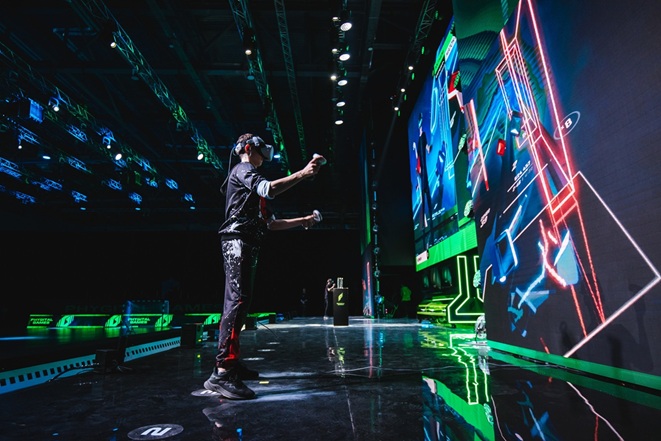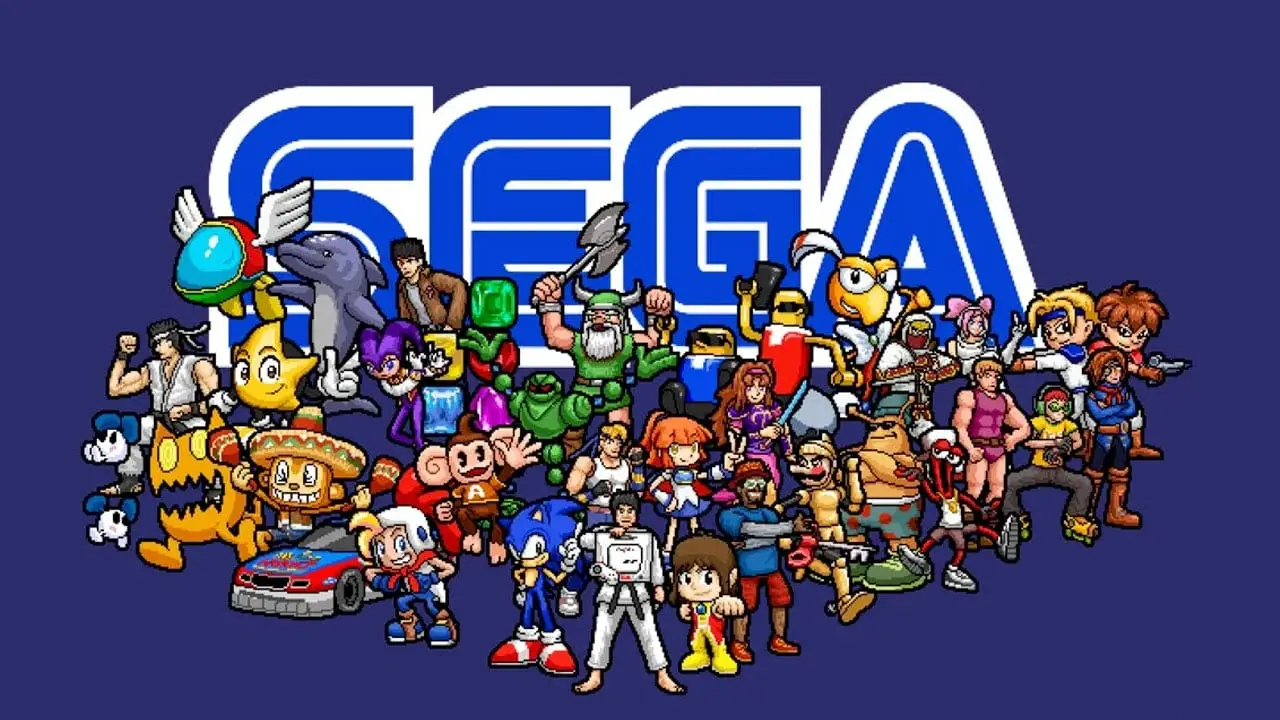TL;DR: Cowboys and mechs shouldn’t mix, but Bounty Star makes it work — a reflective, dust-soaked journey about survival, healing, and fixing what’s broken, one bolt and tomato plant at a time.
Bounty Star
There’s a peculiar kind of silence that only exists in deserts. Not the cinematic kind, where a tumbleweed rolls by and a harmonica wails its lonesome song. No, the silence I’m talking about is heavier — something that sits on your shoulders, presses against your ribs, and reminds you how small you are in a world that’s long since moved on. That’s where Bounty Star lives. Not just geographically, but emotionally. It’s a game about surviving in that kind of quiet — the space after catastrophe, the pause after the gunfight, the breath before deciding whether to build something again or just keep wandering. And it’s all wrapped up in a steel exosuit with a six-shooter attached to the arm.
Annapurna Interactive, that boutique publisher that never met a melancholy indie it didn’t love, has a knack for finding stories about lost people clawing their way toward something resembling redemption. You’ve got your wayward souls wandering through Outer Wilds’ time loops, your emotionally frazzled delivery driver in Stray, and now, your scarred sheriff in Bounty Star. Developed by Dinogod, this is a mech game that refuses to treat its mechs as mere tools of war. Instead, it asks a quieter question: what happens when the pilot wants to stop fighting, but the world won’t let her?
The premise sounds pulpy enough to fit right in with Saturday morning sci-fi. You’re Clementine, a former sheriff and veteran of too many wars, a woman whose body is a map of bad memories. Tattoos spiral down her arms, burn scars trace her back, and her voice carries the weight of someone who’s already had their big redemption arc and didn’t like where it ended. She’s been given a second shot — a dusty waystation, a run-down mech, and a handful of bounties that need collecting in the middle of a desert that’s half-western, half-post-apocalypse.
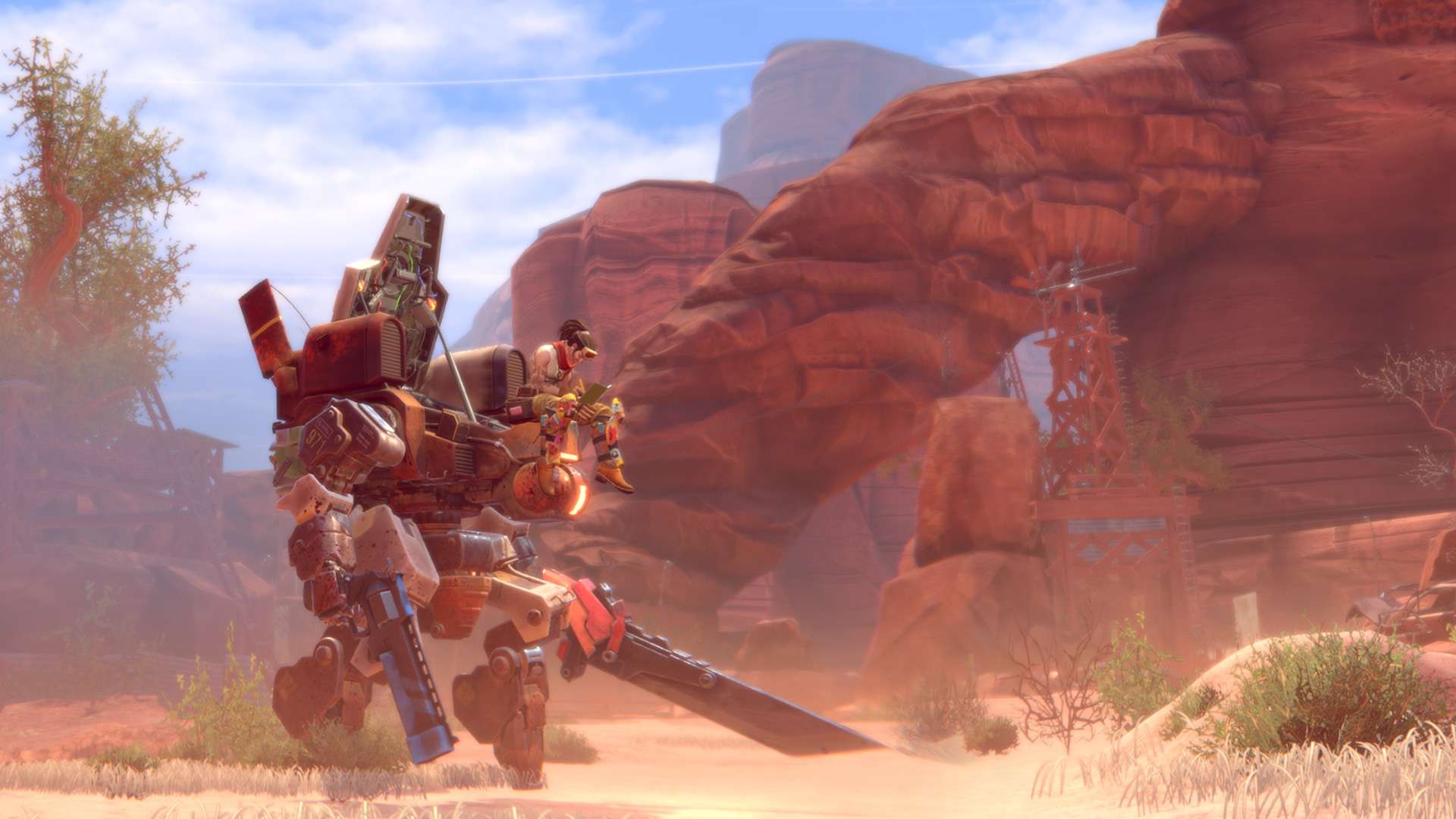
At first glance, Bounty Star looks like one of those stylish mashups that shouldn’t work but somehow does. It’s Red Dead Redemption meets Armored Core by way of Stardew Valley, with a side of Mad Max for seasoning. You hop into your Raptor mech to chase down bandits, tinker with weapon loadouts like you’re tuning a hot rod, and then come home to feed your livestock, grow vegetables, and make a meal that’ll give you a slight combat buff tomorrow. It’s absurdly charming in its contradictions — like if Clint Eastwood suddenly decided he wanted to learn about sustainable agriculture.
But where most mech games crank the volume to eleven and never let up, Bounty Star dares to breathe. The desert isn’t just a backdrop here; it’s a character. When you’re not gunning down outlaws or cutting through scrap-metal dinosaurs, you’re staring out at horizons painted in burnt orange and fading purple. The soundtrack leans on twanging guitars and distant echoes, the kind of sound that makes you feel like you’re sitting on a porch watching the universe turn.
That’s what hooked me early on — not the combat, not even the mechs, but the stillness between the chaos. The first time I parked Clem’s Raptor by the barn, stepped down into the dirt, and heard nothing but wind, I got that same pang I felt in games like Firewatch and The Long Dark. The kind that reminds you video games can be about quiet as much as they’re about action.
Of course, Bounty Star doesn’t forget its roots. When it’s time to fight, the game wakes up with a vengeance. The combat is tight and surprisingly physical, every shot and swing carrying weight. You can swap out weapons and modular systems to adapt to different encounters — heavier artillery for daytime heat, cooling coils for night missions when the air gets cold. It’s all about balance, not just in the tactical sense but the emotional one. Clem’s life is about juggling the violent and the peaceful, the fire and the quiet.
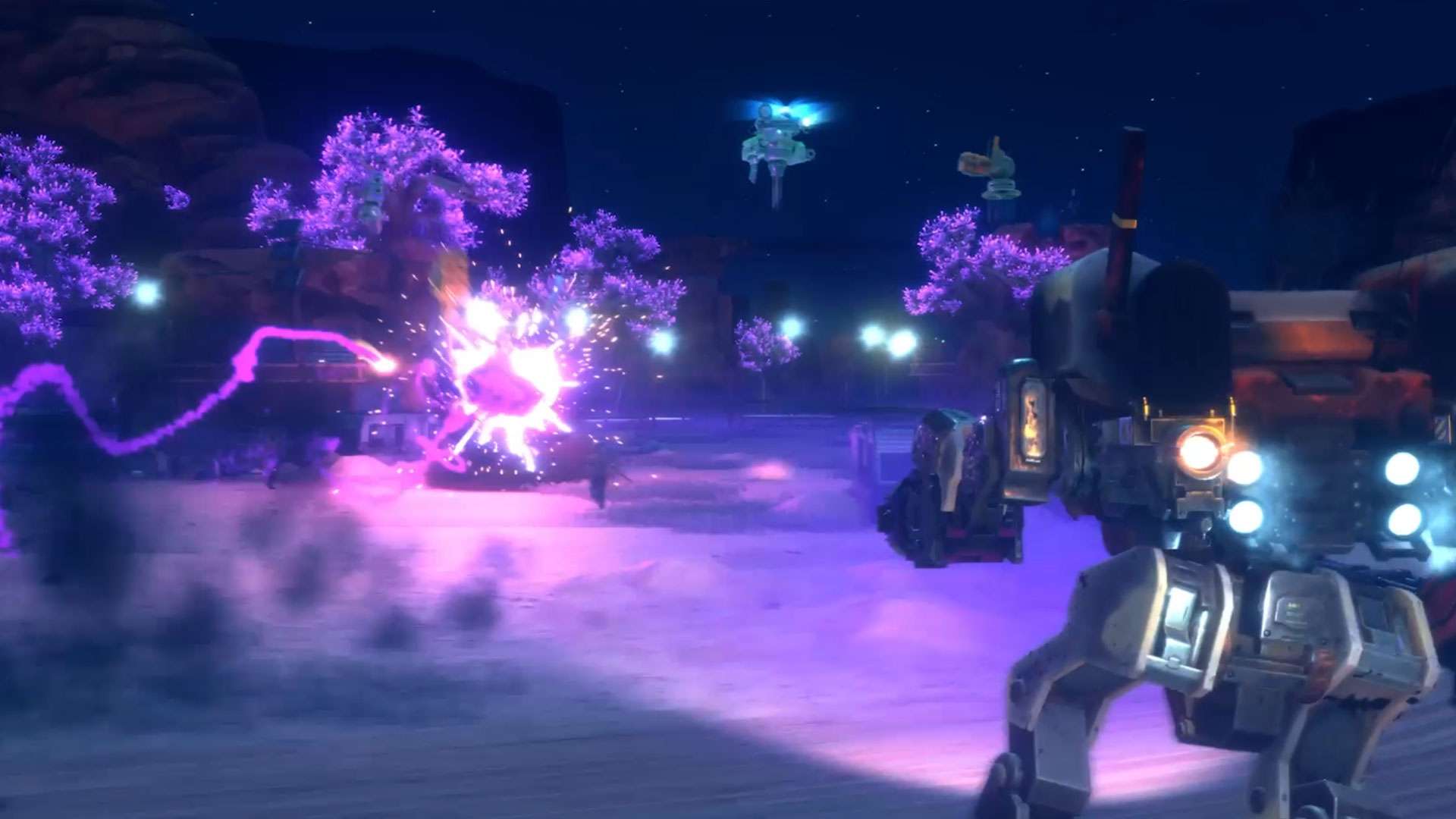
The first few bounties are deceptively simple. Take down a gang holed up in a canyon. Protect a caravan from raiders. But slowly, you start to realize these aren’t just side quests; they’re sketches of a dying world trying to pull itself together. Every outpost you visit is a small tragedy — a place where someone once tried to make a life before the desert swallowed it whole. And every time you return home, the quiet feels heavier, but also more necessary.
That’s where the farming and crafting come in. It’s not just busywork, though it can feel that way if you’re in a rush. You water crops, tend to your animals, and cook meals that give temporary boosts. There’s even a hive for a strange bug companion that becomes one of those unexpected little joys the game keeps tucked away in corners. The rhythm of these chores becomes meditative. After a few days of missions, you start to crave that morning routine — checking the tanks, harvesting a few plants, frying something up before heading out again. It’s a ritual, and in a game about rebuilding yourself, that ritual means everything.
If you’ve ever played Stardew Valley after a long day of stress and felt your shoulders unclench just from watering digital parsnips, you’ll get it. There’s something powerful about games that let you rebuild small worlds in the aftermath of chaos. Bounty Star doesn’t romanticize it, though. It’s not a utopia in the making; it’s just survival, painted in soft pastels and rust.
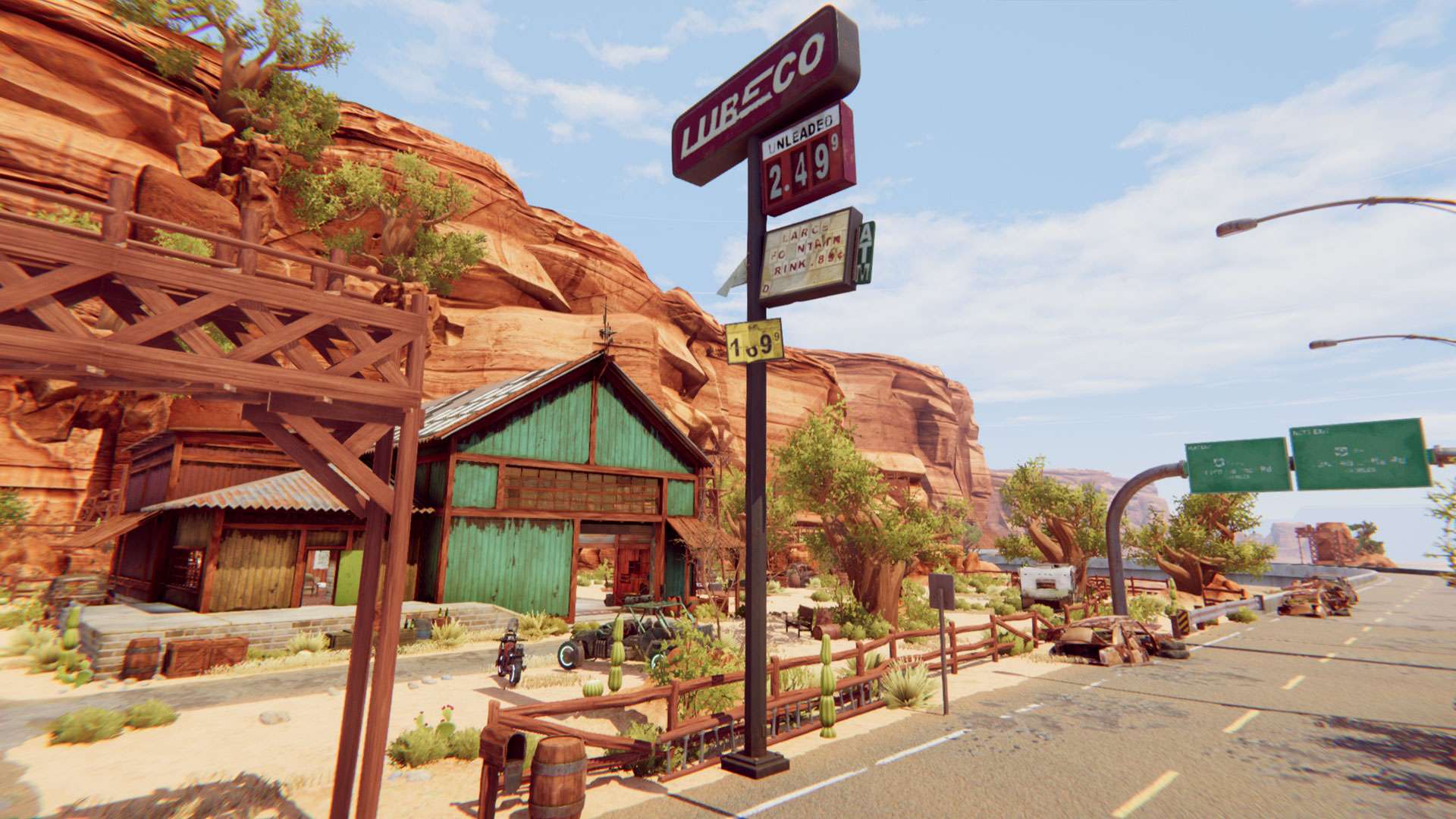
Clem herself is one of the best parts of the game, even though she’s not chatty or overexposed. Her journal entries, which appear after major milestones, reveal more about her than any cutscene could. She talks about trust, about the weirdos she meets in the desert, about the Syndicate that doles out bounties like ration cards. There’s no dramatic exposition dump — just the slow reveal of a woman trying to remember who she was before she became a weapon.
The game’s worldbuilding echoes that sense of restraint. You catch hints about the twin apocalypses that tore everything down, but Bounty Star never gets lost in lore. It’s more interested in what’s left behind — the phosphorescent purple trees that glow at night, the skeletal remains of cities poking through the dunes, the strange beauty of decay. The lighting during nighttime missions is jaw-dropping, casting eerie reflections across your mech’s armor, making every encounter feel mythic.
Annapurna’s influence is clear in the game’s pacing and tone. Like Journey or Kentucky Route Zero, it’s more concerned with emotional resonance than spectacle. That’s not to say there isn’t spectacle — there’s plenty of explosions and big metal brawls — but the heart of the game beats quieter. It’s the sound of Clem writing in her notebook under starlight, the camera pulling back to show her mech silhouetted against the desert sky.
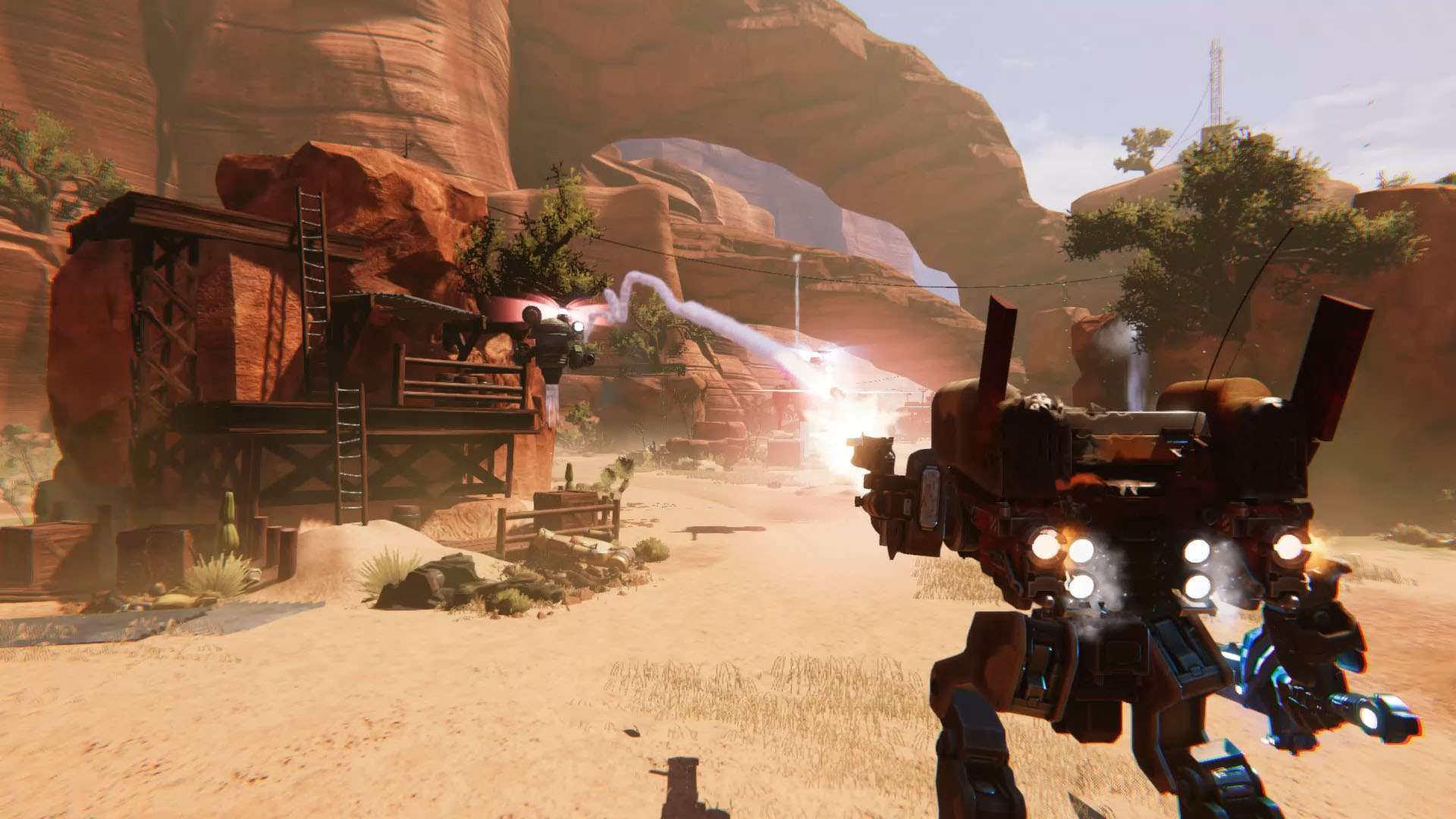
And yet, Bounty Star isn’t perfect. For all its heart, it sometimes stumbles mechanically. The ranch management systems, while charming, can feel undercooked. Certain UI elements are clunky, like a leftover prototype that forgot to grow up. Combat difficulty spikes unpredictably, too — one minute you’re breezing through a skirmish, the next you’re overheating mid-battle because your cooling coil decided to tap out. These moments don’t break the experience, but they do chip away at the immersion the game works so hard to build.
There’s also a pacing issue in the middle stretch. Around the ten-hour mark, when you’ve unlocked a good chunk of your ranch and seen most mission types, the repetition starts to set in. It’s the eternal problem of hybrid games — balancing systems without letting one cannibalize the other. Bounty Star occasionally forgets that what makes its frontier special isn’t the chores or the shootouts, but the rhythm they create together.
Still, even when the gameplay loops stumble, the atmosphere holds everything together. There’s a rare sincerity to this world, the kind that makes you linger longer than you meant to. Every sunset, every whir of your Raptor’s engine, every small success at the homestead feels like a quiet victory.
What I love most, though, is how Bounty Star reframes heroism. Clem isn’t here to save the world — that ship sailed two apocalypses ago. She’s just trying to make a dent in the chaos, maybe even forgive herself a little along the way. There’s a vulnerability in that, one that mech games rarely explore. Usually, when you climb into a mech, you’re meant to feel powerful, unstoppable. Here, it’s almost the opposite. The Raptor becomes a mirror — a fragile shell holding a person who’s already seen too much.
It’s easy to compare Bounty Star to Armored Core 6, since they both came out in the same mech renaissance we seem to be having. But while Armored Core is about mastering systems and climbing a corporate battlefield, Bounty Star is about surviving emotional fallout. It’s an introspective counterpoint — less “giant robot warfare,” more “therapy through agriculture and limited rocket ammo.”
And that’s exactly why I think it works. In a gaming landscape overflowing with noise and excess, Bounty Star’s humility feels revolutionary. It’s a game that trusts its players to sit still, to find meaning in the slow crawl of recovery.
I don’t know if Bounty Star will win over everyone. Some players will bounce off the deliberate pacing, the repetition, the subtle storytelling. But for those of us who find beauty in broken things — who understand that the desert isn’t empty, it’s just quiet — this is something special.
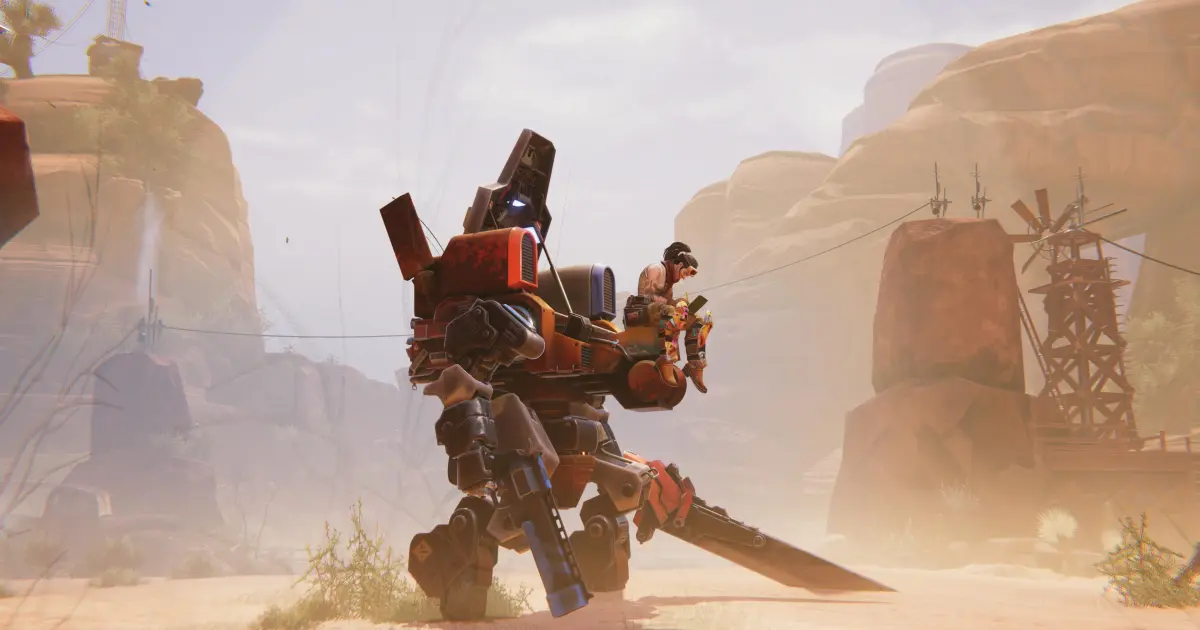
I’ve spent over twenty hours with the game now, and I still catch myself pausing mid-mission just to watch the light hit the sand. That’s the mark of a game that knows what it’s doing. It’s not trying to wow you every second. It just wants you to breathe, to rebuild, to find purpose in the wreckage.
When the credits finally roll — if you can even call them that, since Bounty Star sort of drifts to an end rather than explodes into one — I felt something rare: peace. It’s not a perfect game, but it’s a sincere one, and sincerity is in short supply these days.
Verdict
Bounty Star is a soulful, beautifully scrappy blend of mech combat and frontier survival that finds grace in the grind. It stumbles in its pacing and polish, but its heart is pure. Dinogod and Annapurna have crafted a game that feels like sitting by a campfire in a world that forgot how to burn — warm, haunting, and quietly alive.


